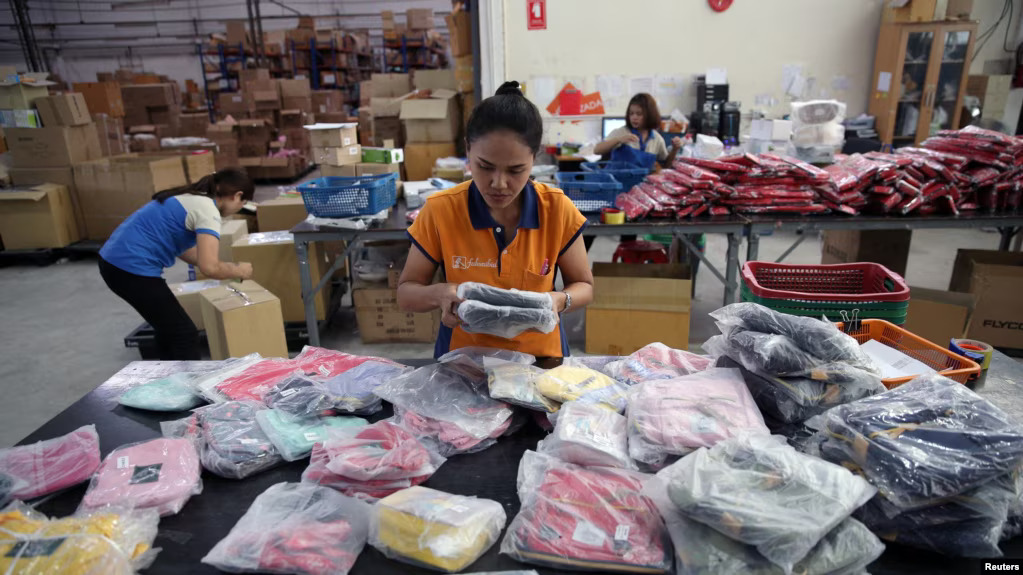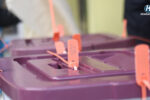The economy of China has not revived despite several measures by Beijing to arrest its prolonged downturn.
From interest rate cuts to increased government spending and steps to revive the confidence of consumers like doubling subsidies for electrical vehicles to encourage people to replace old cars have been tried.
Rather, the imposition of import duties on Chinese products like electrical vehicles by several countries to prevent attempts at dumping has further complicated the scene for Beijing.
It is no wonder that on the celebration of the 75th National Day of China on October 1, President Xi Jinping warned that “the road ahead may be stormy” for the country.
The story of double-digit growth of the Chinese economy is now folklore. The Chinese economy has grown at 4.7 percent in the second quarter of 2024 after growing at 5.3 percent in the first quarter.
The growth rate in industrial production in August is down, compared to the figures in July.
In September last, the Joe Biden administration in the U.S. announced the awarding of over $3 billion to U.S. companies to boost domestic production of advanced batteries and other materials used in EVs.
Factory output, retail sales and investments have failed to meet expectations. Unemployment rates surged to a six-month high in China in August; to 5.3 percent as against 5.2 percent in July.
The worst rub is that the International Monetary Fund has projected that the economic growth rate of China in 2024 will be restricted to five percent and fall to 4.5 percent in 2025.
The rate of growth will contract to 3.3 percent by 2029 due to an ageing population and slower population growth.
“The drums of a deepening economic slowdown are beating louder, and it’s time for China’s leadership to decide whether to step up or risk sliding further into stagnation,” Stephen Innes of SPI Asset Management has been quoted in an AP report in the middle of September.
Domestically, the main villain pulling down the Chinese economy has been the prolonged decline in the property sector.
Prices of houses have crashed. Investments in real estate are declining.
The housing market has been in a slump since the crackdown in the pre-Covid days on excessive borrowings by developers.
Investments in the real estate sector declined by 10.2 percent between January and August this year, compared to figures for this period last year.
The housing market has continued to flounder since the crackdown; leading many to default on their debts and fail to deliver to buyer apartments for which they had already paid for.
Some of the largest property developers in China have collapsed. Evergrande, once the most valuable real estate company in the world, filed for bankruptcy in the U.S. in 2023 after it defaulted on debt repayment worth over $300 billion.
In January 2024 a Hong Kong court ordered its liquidation. Country Garden, the largest property developer in China, has a debt of $205 billion and is undergoing a liquidation analysis.
Housing is a main form of investment in China. It supports many other industries; such as construction materials, home decoration and home appliances.
In July last, the politburo of the Chinese Communist Party, echoing priorities laid out by an extended meeting of senior CPC members, recommended measures to restore confidence in the financial market and to boost government spending.
Following this, the People’s Bank of China, the Chinese central bank, reduced several key interest rates.
The government doubled subsidies for electrical vehicles bought to replace old cars; in an effort to spur economic growth. But these, too, did not have the desired effect.
Between July and August, the growth rate in industrial production dropped from 5.1 percent to 4.5 percent compared to a year ago while the growth rate in retail sales dropped from 2.7 percent in July to 2.1 percent in August.
Under President Xi Jinping, China has given priority on the development of advanced technologies such as electrical vehicles and renewable energy.
This has in a way boomeranged on the Chinese economy. On the one hand overcapacity in areas like solar panels has squeezed out some manufacturers.
On the other hand, Western nations which are the main markets for the electrical vehicles have imposed import duties on EVs to protect their own manufacturers and to prevent subsidised Chinese manufacturers from flooding their markets with subsidized EVs.
According to reports, so many solar panels have been installed in China that they generate more power than what the storage and transmission infrastructure in China can handle.
This has prompted the Chinese authorities to withdraw some price support for the sector; directly affecting Chinese manufacturers.
Last March, Longi Green Energy Technology, the largest solar cell manufacturer in the world, announced the lay-off of 4,000 of its workers.
U.S. President Joe Biden has said the Chinese government subsidizes EVs and other consumer goods to ensure that Chinese companies do not have to turn a profit; giving them an unfair advantage in global trade.
The China Photovoltaic Industry Association has called for more mergers and acquisitions and restrictions on domestic competition to control capacity.
Meanwhile, countries like the U.S. and Canada have geared up to meet the challenge from Chinese electrical vehicles.
In September last, the Joe Biden administration in the U.S. announced the awarding of over $3 billion to U.S. companies to boost domestic production of advanced batteries and other materials used in EVs.
The grant will fund a total of 25 projects in 14 states. Under an earlier round of EV battery funding ongoing since 2021, $1.8 billion have been awarded to 14 companies.
White House Economic Advisor Lael Brainard has said that this award is important for building an end-to-end supply chain for batteries and critical minerals in America; something vital to reduce the dominance of China in this critical sector.
The Canadian government last August imposed a 100 percent tariff on the import of Chinese-made electrical vehicles following similar moves by the U.S. and the European Union.
“Actors like China have chosen to give themselves an unfair advantage in the global marketplace,” Prime Minister of Canada Justin Trudeau has said.
U.S. President Joe Biden has said the Chinese government subsidizes EVs and other consumer goods to ensure that Chinese companies do not have to turn a profit; giving them an unfair advantage in global trade.
The EU has imposed a provisional tariff of up to 37.6 percent on EVs made in China, saying they benefit unfairly from government subsidies.
In the U.S., the tax rate on imported Chinese EVs rose to 102.5 percent in 2024, up from the total levels of 27.5 percent.









Comment